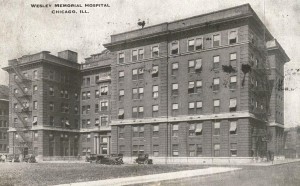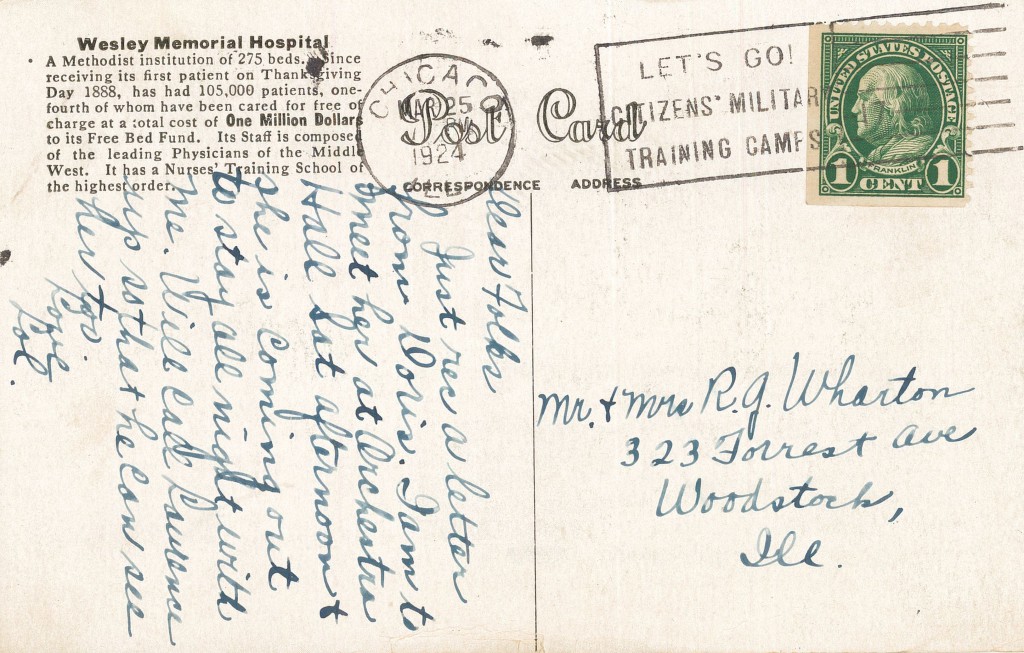 Earlier this week I was scrolling through my newsfeed and I saw a blog post where the author scolded herself and urged her readers to “practice what you preach.” I often think this, especially when I teach the first class of my three-part series on “Getting Started in Genealogy.” The crux of the first lecture is to work from the known to the unknown – not to skip ahead – and to record data using a chart or genealogical software (including sources examined). I encourage students to begin their genealogical journey with material from their own homes, to interview themselves, and to talk to relatives. Because who better to talk to, when learning about your family, than your own family members?
Earlier this week I was scrolling through my newsfeed and I saw a blog post where the author scolded herself and urged her readers to “practice what you preach.” I often think this, especially when I teach the first class of my three-part series on “Getting Started in Genealogy.” The crux of the first lecture is to work from the known to the unknown – not to skip ahead – and to record data using a chart or genealogical software (including sources examined). I encourage students to begin their genealogical journey with material from their own homes, to interview themselves, and to talk to relatives. Because who better to talk to, when learning about your family, than your own family members?
And, yet, I occasionally forget to follow my own advice. You see, I’ve been recording my own family history for about ten years now, so I sometimes I think that I’ve learned all there is to know about the most recent generations. I’ve already talked to my grandparents, aunts, uncles, and cousins. What else could I possibly learn? Well…
 Recently, my aunt gave me a stack of postcards that belonged to my grandmother. Most of them were adorable, sweet notes between my grandmother and grandfather during their time away from each other before and during World War II. However, one of the postcards really caught my attention. It was written by Lol Wharton to my great-great-grandparents, Richard Wharton and Anna Durrie of Woodstock, Illinois. Now, the reason it caught my attention was that I had no idea who Lol Wharton was, although I suspected Lol was one of their daughters, either Flora or Laura Wharton, and that she was probably living near (or working at) Wesley Memorial Hospital in Chicago. In the postcard she mentions meeting up with Doris and sends greetings to Lawrence, and these were two new names to me.
Recently, my aunt gave me a stack of postcards that belonged to my grandmother. Most of them were adorable, sweet notes between my grandmother and grandfather during their time away from each other before and during World War II. However, one of the postcards really caught my attention. It was written by Lol Wharton to my great-great-grandparents, Richard Wharton and Anna Durrie of Woodstock, Illinois. Now, the reason it caught my attention was that I had no idea who Lol Wharton was, although I suspected Lol was one of their daughters, either Flora or Laura Wharton, and that she was probably living near (or working at) Wesley Memorial Hospital in Chicago. In the postcard she mentions meeting up with Doris and sends greetings to Lawrence, and these were two new names to me.
So my mission was to learn the relationship between Lol Wharton, Lawrence, and Doris with regard to my great-great-grandparents. The first part was easy: Lawrence was the name of Richard and Anna (Durrie) Wharton’s son, so I was comfortable stating that the Lawrence mentioned in the postcard was my great-great-uncle. Next, I needed to determine if Lol was Laura (Wharton) Burk or Flora Wharton, both daughters of Richard and Anna Wharton. This turned out to be a very difficult problem, and let me assure you, I looked at every resource I could think of – newspapers, city directories, censuses, etc. However, I could find zero connection between Flora and Laura Wharton and someone named “Lol Wharton.”
My gut was telling me that the postcard was written by Laura (Wharton) Burk, as it was the only postcard included in the collection other than letters between my grandparents. And when I tried to answer why my grandmother would keep this postcard along with those between her and her future husband, I theorized that my grandmother, Laura Louise (Brown) Fulton, kept the card because:
- She was probably named after her aunt, Laura (Wharton) Burk;
- Laura (Wharton) Burk died in 1935, when my grandmother was 21 years old, but not yet enrolled in nursing school; and
- It appeared that Laura (Wharton) Burk became a nurse after she studied at Wesley Memorial Hospital in Chicago, and my grandmother was also a nurse.
However, not one of these assumptions could be backed by documentation. All in all, I was very frustrated.
Then I spoke to my aunt, the very aunt who gave me the postcards to begin with, and she knew exactly who Lol was – she was Laura (Wharton) Burk. And as theorized, my aunt was able to confirm all of my suspicions: my grandmother was in fact named after Aunt Laura, she became a nurse because of the influence of her namesake, and Aunt Laura became a nurse after studying at Wesley Memorial Hospital. If only I had followed my own advice!! Maybe I wouldn’t have been so frustrated!!
The next step is to learn how Doris is connected to Laura (Wharton) Burk, Lawrence Wharton, and Richard and Anna (Durrie) Wharton. I guess I should ask around…
You live in Massachusetts, just go to the vital records office and your questions will be answered. I rarely ask family about my relations because they get it wrong so many times. I should just go and go right to the vital records because I have learned that they have led me on too many bad paths in the past.
But she checked records and nothing revealed the nickname which only the family member knew.
A good reminder. Family doesn’t always have correct info but there are generally good clues. If I hadn’t recalled my grandmother telling me her father’s occupation or how many siblings she had (when I was a girl), it would have been very difficult to find her family in census records back in Scotland. Like many folks, I’m sure, I now wish I had asked my parents ~more~ about their family and roots while they were still with me – could have saved me some time and effort. There are things they said, too, and I don’t always know why they believed as they did. For example, it was said we were related to a famous author but I should have asked ~how~ we were related to him. Still don’t know :-((.
And when you become the oldest member of the family, with no one left to talk to, go through EVERY bit of paper, letter, pictures, etc., that you have inherited. It is amazing where the genealogical bits and pieces show up.
Well into her 90s, my aunt has been a treasure trove of those little tidbits of info that no record is going to show. She’d not so sharp now at 99, but until recently I loved to remind her of some story she’d already told me, and that would spark more. And if there were something particular I asked about, she’d say,” Oh, yes, your mother …” or “Iris used to do…” or “That was the nickname for….” She did not hesitate to correct me too, when I was wrong. She often gave details about places and events, and where I could check those out, she was always right. So I have no reason to doubt her take on family lore. She still occasionally gives me a treasure. On the other hand, I had stories, old letters, genealogical notes etc from other members of my family that got things not just wrong, but woefully twisted up with assumptions and I suspect wishful thinking. . I dared not accept any o this at face value. I am now nearly the oldest person in my line, and as Dixie suggests, I am trying to get down my stories and remembrances, along with what little memorabilia I have available to me. And with what I hope is careful research to pass along to the younger generations. Who else is going to let my great-grandchildren that their great-great-grandfather’s favorite pet name for his own grandkids was “little bit”?